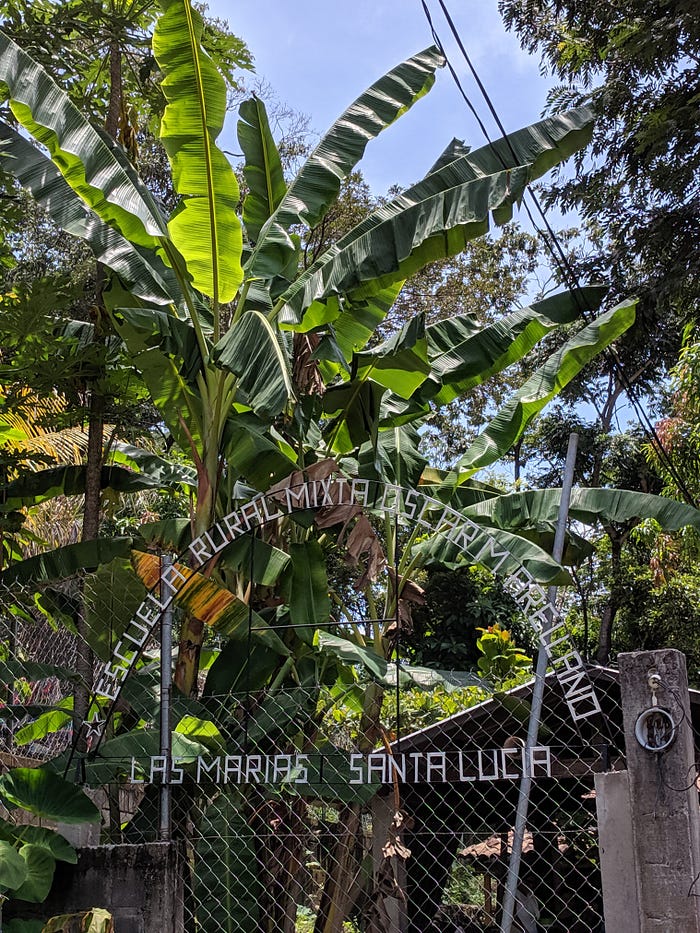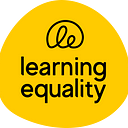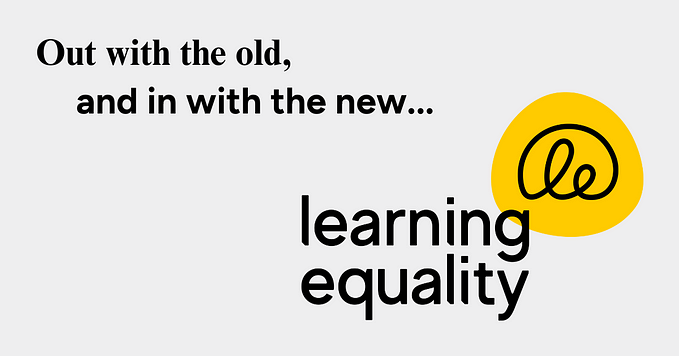Teaching Resiliently in Southern Intibucá, Honduras
Teachers Efrain and Edy's commitment, love, and determination are impacting not only their students but an entire community around them. Carine Diaz, Learning Equality’s LATAM Implementations Lead, shares more.

It was a long, bumpy trip through a narrow, winding, muddy, rocky road down the hills to get to our destination in Southern Intibucá, Honduras.
The Las Marias primary school, which sits at the outskirts of the municipality of Santa Lucia, benefits 74 learners from grades 1–6, who walk the same bumpy roads, up and down the hills daily, in order to fulfill their longing for learning.
And they’re not alone, where there are learners, there ought to be teachers. And teachers there were. But only two. Two incredible individuals, Efrain and Edy, who alone, share the responsibility and the workload of managing and teaching multigrade classes, with very little resources.
This school is part of the CREE Program, designed by the nonprofit organization Shoulder to Shoulder (Hombro a Hombro) with support from Learning Equality.
Our visit took place last year, in a world pre-COVID-19. These two teachers displayed a profound kindness, resilience, and selflessness; back then, we couldn’t have predicted how vital these qualities would be just over a year later to navigate a learning crisis fueled by a global pandemic.
Through Shoulder to Shoulder’s CREE Program, the Santa Maria school received tablets and a laptop server with our open source learning platform Kolibri, which has LMS-functionality but is designed for offline use, catering to low-resource contexts where the Internet is not available. With the entire digital curriculum from the Honduran Ministry of Education uploaded onto Kolibri, supplemented by exercises created in the platform, and additional resources for the Kolibri Content Library, teachers were set to start receiving training.

Teacher Efrain had some previous experience in informatics and was excited to learn this new tool. There was no hesitation in him — he was thrilled at the opportunity. Now Teacher Edy, having never used a computer or a smartphone before, was very apprehensive: “I was totally scared and unsure but ultimately decided I would try to learn because I wanted this for my kids.” And learn she did.
With training and support from Shoulder to Shoulder and, according to her, with the relentless support from her colleague, Teacher Efrain, who took the time to walk through whatever she needed, whenever she needed, Edy did learn. “If it weren’t for Efrain’s support, I’m not sure I’d have excelled like this. While Kolibri is very easy to use, I was crippled by fear. But when I started using the platform and making progress, I completely fell in love, and today, I cannot imagine not using Kolibri in class.”

It is now two years since we introduced the first servers and tablets to their school. The way they teach multigrade classes is by teaching a grade in their respective classrooms (grades 1–3 are in one class and 4–6 in the other) and then sending the students over to the computer lab to work independently on pre-assigned work that is on the tablets. Since there are only the two of them, there is no supervision in the lab, except perhaps for the occasional look in.

The teachers told us they have seen a tremendous change in learner behavior, attendance, and performance since Kolibri was introduced in the school.
They also told us that for Maths, they like to supplement the curriculum using Khan Academy resources, but that they had found early on that the materials didn’t match up exactly with the Honduran text sequence. They needed to organize the resources to the curriculum, and since the Kolibri ecosystem allows for that work to be done (the importance of aligned, easily discoverable resources are very much a part of Learning Equality’s work), they solved this problem by working extra time after the end of each school day, plus weekends, and even during a picnic, to create this mapping and embed it in their Kolibri lesson structure. In less than a month, they had planned all their lessons for the year, and were completely ready for the 2020 school year! This was not only great for this school, but to all participating schools in the region, since Shoulder to Shoulder was able to collect these lessons and make them the standard for the other primary schools in Southern Intibuca. It was also great for us, at Learning Equality, since our product roadmap is informed by direct feedback from our community and close collaborators. And the need for sharable lessons is validated by similar feedback from users in other countries. This feature is currently being developed and it will be available in the next version of Kolibri.
It’s truly impressive how a school that has so little is doing so much — not only for their students but for all the other schools in the area. And it’s all because of the resilience and passion of these two individuals who, with unwavering commitment and selfless dedication, are shaping the future of the children of Intibucá.
I cannot think of two better people to honor today, on International Teacher’s Day.
To learn more about how other teachers in Intibucá are using Kolibri during the pandemic, check out Shoulder to Shoulder's recent blog post.
Subscribe here to stay up to date on this and other stories, as well as to receive updates on new Kolibri features, the upcoming Kolibri Android App, and more!









